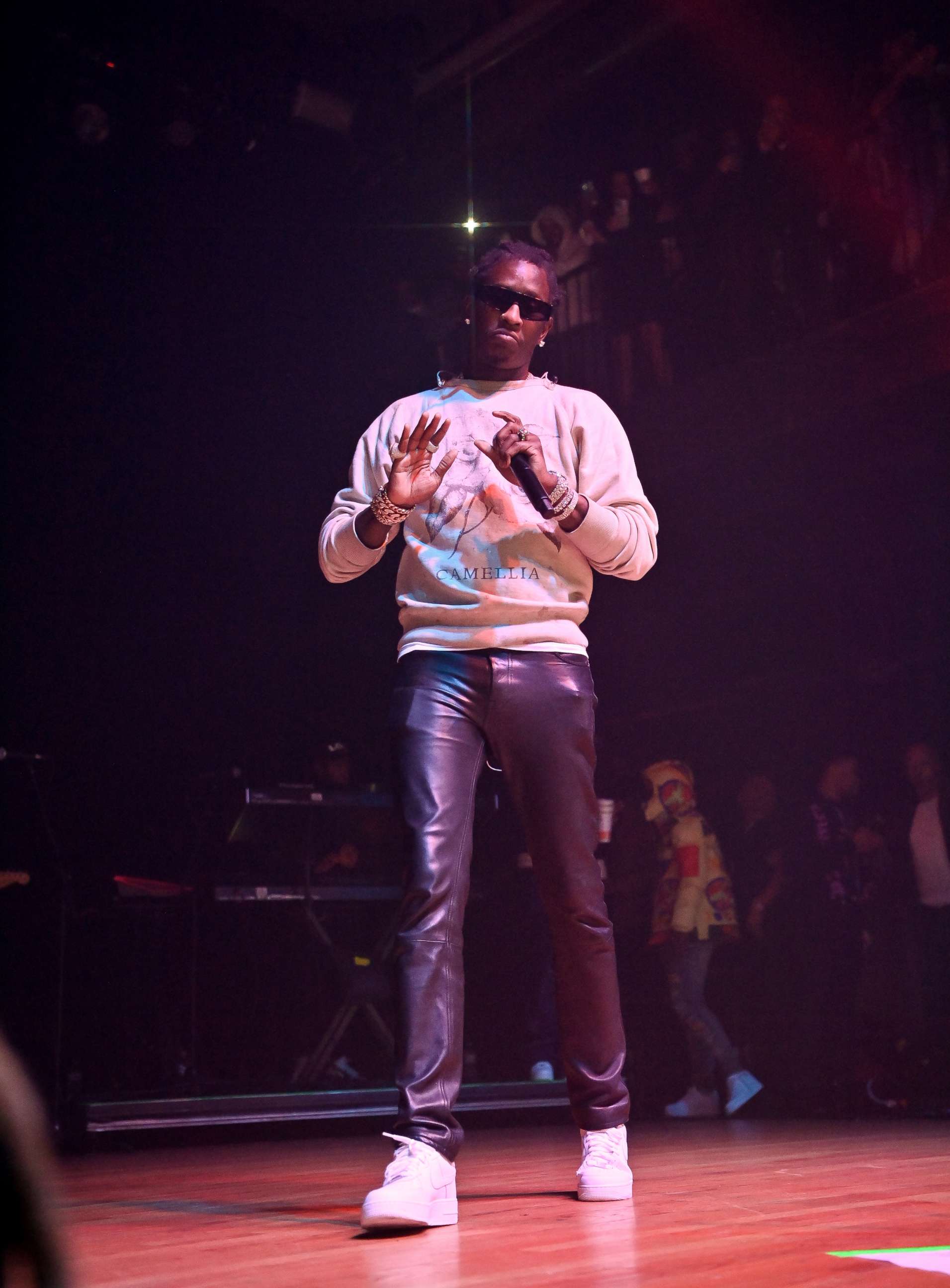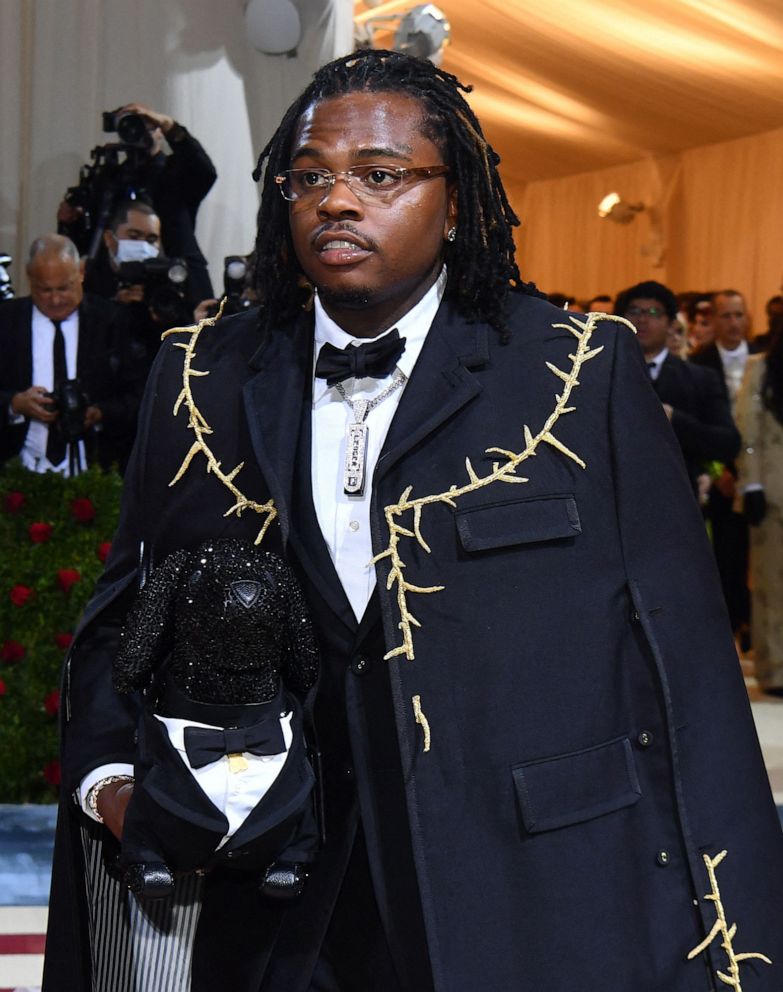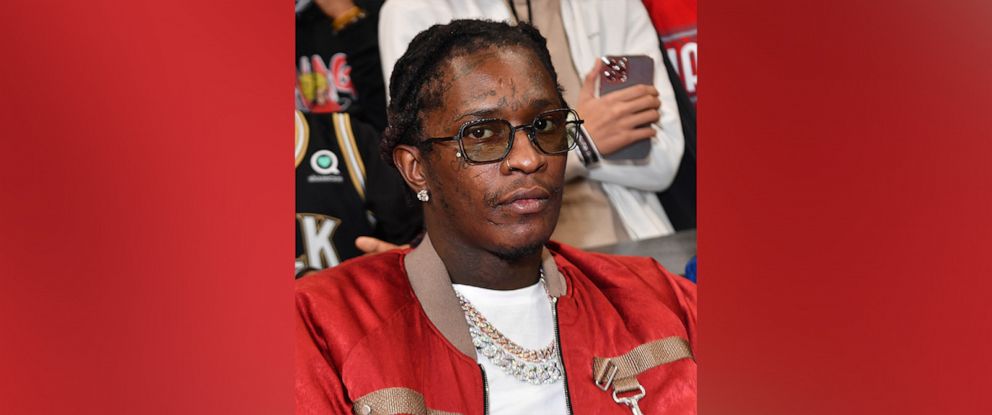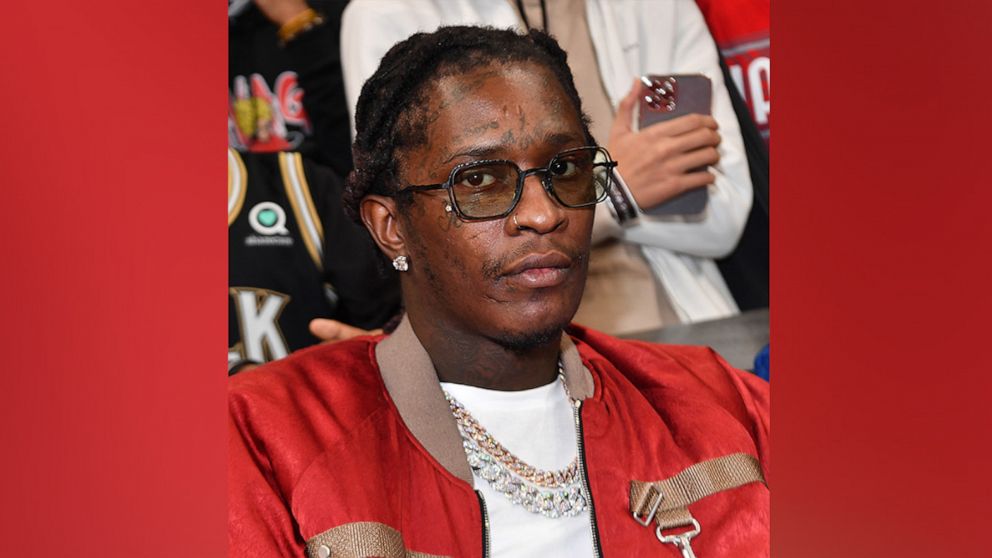Rappers Young Thug, Gunna hit with gang-related charges in sweeping indictment
Prominent Atlanta rapper Young Thug was arrested on Monday on gang-related charges after being named in a sweeping 56-count grand jury indictment in Georgia.
The rapper was among 28 people allegedly associated with the Atlanta-based Young Slime Life (YSL) gang, which authorities say he founded in 2012, who were charged with conspiring to violate the state’s Racketeer Influenced and Corrupt Organizations (RICO) act, according to charging documents obtained by ABC News. YSL is also the name of his record imprint, Young Stoner Life, and a number of those charged are associated with the label.
Fulton County District Attorney Fani Willis addressed the indictment at a press conference on Tuesday morning and vowed to prosecute those named "to the fullest extent of the law.
"It does not matter what your notoriety is, what your fame is," she said. "If you come to Fulton County, Georgia, and you commit crimes, and certainly if those crimes are in furtherance of a street gangs, that you are going to become a target and a focus of this district attorney's office and we are going to prosecute you to the fullest extent of the law."
RICO cases have been used to take down the Mafia among other criminal enterprises.

Young Thug, whose real name is Jeffrey Lamar Williams, is charged with two alleged counts -- conspiring to violate the RICO act and participating in street gang activity.
“Mr. Williams has committed no violation of law, whatsoever. We will fight this case ethically, legally and zealously. Mr. Williams will be cleared,” Young Thug’s attorney Brian Steel told ABC News on Monday night.
Steel said that Young Thug is currently in custody and the court will set a hearing in the near future to consider bond.
Atlanta-based rapper Gunna, whose real name is Sergio Giavanni Kitchens, was also named in the indictment on one count of conspiring to violate the RICO Act.
"He is not in custody," Fulton County Sheriff Patrick Labat said at a press conference on Tuesday when asked about Gunna's whereabouts. "We are making arrangements," he added.
ABC News has reached out to representatives for Gunna but a request for comment was not immediately returned.

According to the indictment, among the objectives of the alleged conspiracy was “preserving, protecting and enhancing the reputation, power and territory of the enterprise through acts of racketeering activity including murder, assault and threats of violence.”
Authorities say Young Thug is one of the founders of an Atlanta “criminal street gang" called YSL, which started in late 2012 and “claims affiliation with the national Bloods gang,” according to charging documents.
Record label Young Stoner Life was announced in 2016 by Young Thug and is an imprint of 300 Entertainment. More than a dozen artists are signed to the Young Stoner Life label, including Gunna. ABC News has reached out to representatives of the music label but a request for comment was not immediately returned.

Young Thug, who rose to the national spotlight in 2014 with songs like “Stoner,” is an influential Grammy-winning hip-hop artist who has collaborated with artists like Gucci Mane, Kanye West, Drake, Future, T.I. and Travis Scott.
“Jeffery Williams, an Atlanta-based hip-hop artist, made YSL a well-known name by referring to it in his songs and on social media,” according to the indictment, which also references several of Young Thug and Gunna’s lyrics and music videos that include mentions or symbols of YSL.
Referencing the lyrics of hip-hop artists in alleged criminal charges is not new and is a practice that has drawn criticism from freedom of speech advocates and artists, who argue that music is art and should be protected.
When asked about the First Amendment and the argument of free speech, Willis defended on Tuesday the prosecutor's use of lyrics as alleged evidence in the indictment.
"I believe in the First Amendment. It's one of our most precious rights," she said. "However, the First Amendment does not protect people from prosecutors using it as evidence. It is in this case -- we put it as overt within the RICO count because we believe that's exactly what it is."
Most recently, a law was introduced in the New York Senate that “limits the admissibility of evidence of a defendant's creative or artistic expression against such defendant in a criminal proceeding.”
The law, titled “Rap Music on Trial,” was backed in January by hip-hop stars like Jay-Z, Meek Mill, Big Sean and Fat Joe, who wrote a letter expressing their support for the legislation.




